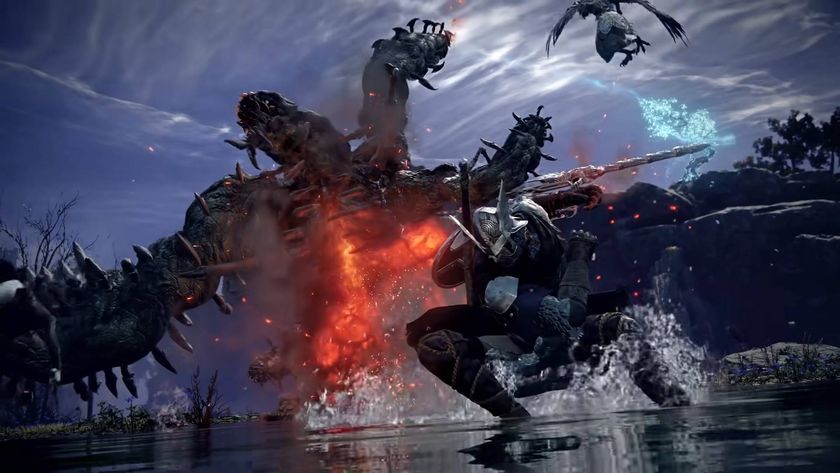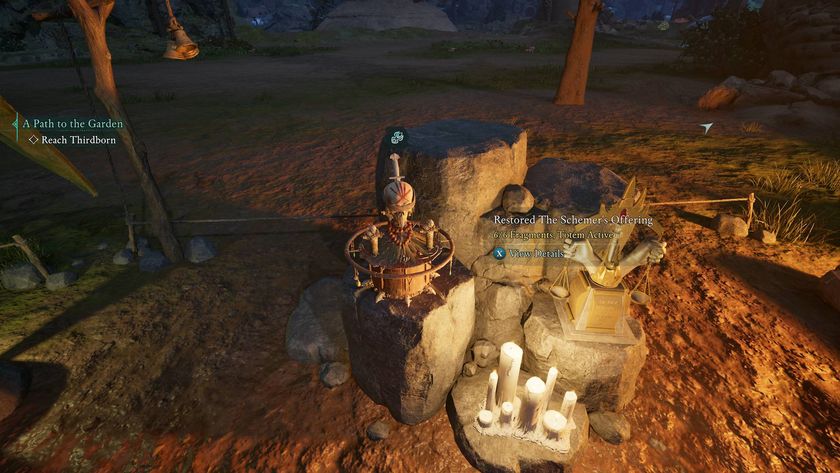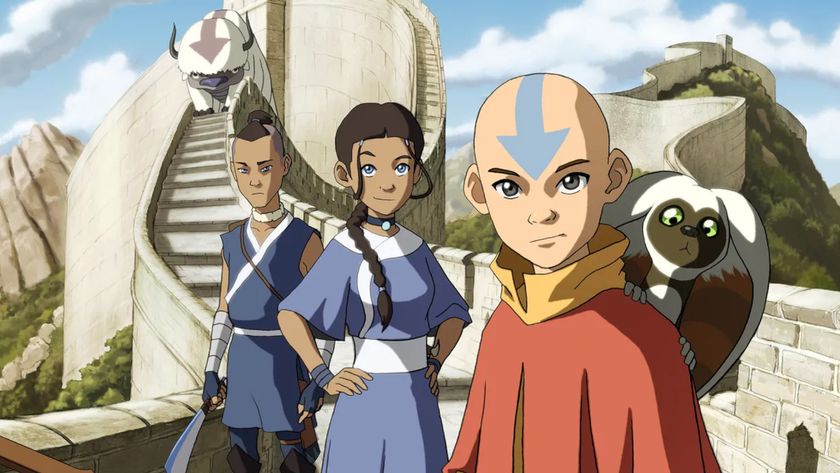Bloodbornes creator talks death and dark things
Here's a shocking and entirely original revelation: Bloodborne is quite the dark adventure. Shocking huh? We've already quizzed game director Hidetaki Miyazaki on the challenge of creating conventional stories and the importance of having to work for Yharnam's tastiest victories, but now it's time to grill him on overdrive. In a previous issue of GamesMaster, the team sat down with the Souls series overlord to talk all things Hunter and Yharnam…
GM: Now that Bloodborne is out there, are you surprised by how it’s been received?
HM: Yeah, I’m always grateful for the feedback from the players for any of my games, including Bloodborne. It’s not always positive but it’s a great opportunity for us to feel pride in our work or to gain valuable suggestions. And also it’s the time to reflect. For example, the feedback regarding the difficulty. It was very interesting as the way users felt was very varied.
GM: What were your initial aims when you first started work on the game? Do you feel you met them?
HM: It’s not only on Bloodborne, but we’ve never felt any work has been completed perfectly. There are actually many major and minor things which occurred due to my inadequacy which I wish I could fix. But I feel that our initial aims hadn’t changed from the beginning to the end of the development, such as the sense of fighting to the death and the vision of a world which is deadly and grotesque.
GM: Much of the deeper horror of Bloodborne relates to childbirth, particularly the story of Queen Yharnam and the Great Ones. Why was that such a focus?
HM: Our initial idea was ‘people who are superior than others are losing their child.’ So the special child could be used as a bait to attract them. Don’t you think any creatures that are stronger than or superior to others have fewer babies? Does this apply to humans too as developed countries have lower fertility? So when I think back about it, we might have had that idea fundamentally. The loss of a child... it’s a doomed future for any species, isn’t it?
GM: Bloodborne goes to some very dark places. Do you ever feel the need to pull back from certain ideas? Do you think it’s possible to go too far down a dark path?
HM: I understood that the view of the world in this title is rooted in a very dark part. Believe it or not, I restrained myself from going too far. But I wonder if I might have delved too far down when I get asked a question like this during an interview! (Laughs)
GM: You and the team obviously spend a lot of effort creating the stories behind the locations we visit in Bloodborne. Do you craft these expecting only a certain number of players to delve into them?
HM: I didn’t think about the exact number of players [who would dig into the details more] but I felt that some would be, as we [at From Software], especially myself, are that kind of player! (Laughs) Creating a map is such a joy, as it’s the process to gather a thread of meaning to explore. If I had to choose one area in game development to work in, I’d choose it.
GM: Are you disappointed when there are certain things in your games that remain undiscovered or unclear for players?
HM: I’m not disappointed if aspects remain undiscovered by players. Of course, I’m not intending to create aspects that shouldn’t be delved, but I still believe this world would be ‘bleached’ and lose its fascinating aspects if all the mysteries of it became perfectly clear.
Sign up to the 12DOVE Newsletter
Weekly digests, tales from the communities you love, and more
GM: Do you think you’ll ever tell a ‘straight’ (for want of a better word) story in a game? Do such stories in other games frustrate you?
HM: I never dislike a story that is conventional and easy to understand. Conventional stories are great. I respect any works that have managed to make the conventional stories appealing as it’s very difficult to achieve. I’d like to challenge myself to create one someday. But then people might say, ‘Is this story meant to be conventional?!’ (Laughs)
GM: Why did you decide to bring back finite healing items, rather than something like Estus Flasks?
HM: It’s because I wanted to change the aspect of the healing management in the game from Dark Souls. I give a lot of weight to the sense of survival inspired by the act of procuring dropped items from enemies.
GM: What inspired the creation of the Insight system?
HM: This is pretty much what you have guessed. SAN (Sanity) points in the tabletop RPG Call Of Cthulhu. The concept is very fascinating, isn’t it?
GM: What do you see yourself working on next?
HM: It’s not the time to talk about the next project yet, but it is already in progress, of course. It’s like the end of the progress, of course. It’s like the end of the old regime, and it’d be the last project which has been decided [upon] since before I became the president.
The latest issue of GamesMaster, 293, is out now. Download it here or subscribe to future issues.
Dom has been a freelance journalist for many years, covering everything from video games to gaming peripherals. Dom has been playing games longer than he'd like to admit, but that hasn't stopped him amassing a small ego's worth of knowledge on all things Tekken, Yakuza and Assassin's Creed.
Most Popular










